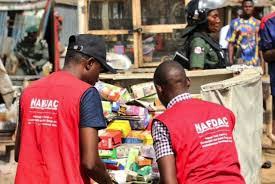The National Agency for Food and Drug Administration and Control (NAFDAC) has launched a robust media sensitisation campaign across Bauchi State to promote the safe handling, usage, and sale of agricultural chemicals, especially during the peak of the rainy season.
The initiative, driven by the Bauchi State office of NAFDAC, aims to tackle rising concerns over the misuse and mishandling of agrochemicals by both sellers and farmers. According to the State Coordinator, the campaign is a proactive step to educate rural communities and market players on how to identify genuine products and understand the health risks associated with improper practices.
A key focus of the campaign is to discourage the exposure of agrochemical products to direct sunlight in market stalls, as this degrades their quality and effectiveness. Sellers are being warned that such poor storage practices not only reduce product potency but also pose serious health and environmental risks.
In addition to promoting proper storage, the campaign will highlight the importance of responsible disposal of empty chemical containers and encourage users to adhere strictly to manufacturer guidelines. NAFDAC will also train agrochemical sellers to act as educators for end users.
To deepen its reach, NAFDAC is partnering with the Bauchi State Ministry of Information and local radio stations, ensuring that educational messages reach farmers in remote communities. Prior grassroots outreach, such as the awareness event at Soro Weekly Market in Ganjuwa Local Government Area, has already yielded insight into unsafe practices and provided direction for future engagements.
NAFDAC is also working closely with the Forum of Agrochemical and Pesticide Dealers in Bauchi to ensure that all products in circulation are properly registered. This move is particularly vital for the regulation of products sold by Small and Medium Enterprises (SMEs), which often operate outside formal regulatory channels.
This campaign reaffirms NAFDAC’s dedication to safeguarding public health and protecting the environment by ensuring that the agricultural value chain adheres to best practices and regulatory standards.










